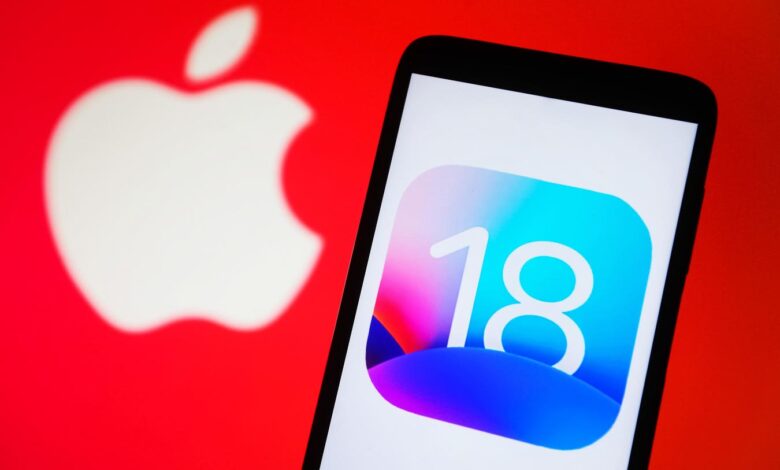New iOS 18 AI Security Move Changes The Game For All iPhone Users

It’s now been confirmed—well, pretty much. Apple’s soon-to-launch iOS 18 update will include AI features that will be processed entirely on the device. When the iPhone 16 launches this fall, this will be a formidable combination that will offer game-changing features and security and privacy.
That’s because iOS 18 on the iPhone 16 will provide all the AI features Apple is offering when its updated software launches, in the most secure way possible.
Apple’s soon-to-launch iOS 18 update will include AI features that will be processed entirely on the … [+]
According to a recent Bloomberg report, Apple is developing its own large language model (LLM) to power on device generative AI features in the iPhone 16 series. Apple’s AI features probably won’t be superior to those of its rivals, but the way it implements the technology could “still be a game changer,” Bloomberg Apple commentator Mark Gurman wrote in his PowerOn newsletter.
“Apple’s AI tools may be a bit less powerful and knowledgeable in some cases (the company could fill in the gaps by teaming up with Google and other AI providers), but the approach will make response times far quicker. And it will be easier for Apple to maintain privacy,” Gurman added.
This week, Apple introduced a set of tiny source-available AI language models called OpenELM small enough to run directly on a smartphone. The proof-of-concept research models could form the basis of future on-device AI offerings from Apple, ArsTechnica writes.
Apple’s iOS 18 AI Strategy
It fits with what we know so far about the iPhone maker’s AI strategy. Last year, Apple bought Canadian start-up Darwin AI, a company that has developed technology able to make AI systems smaller and faster.
Apple’s AI features—including enhancements to Siri and auto-summarizing and auto-completion features in apps—are expected to run better on the iPhone 16 when it launches. This is because Apple’s soon-to-launch new iPhone will include a more powerful chip capable of running these AI features.
Apple’s next-generation A18 Pro chip for iPhone 16 Pro models will feature a larger die size for boosted artificial intelligence performance, according to Jeff Pu, an investment analyst, reported MacRumors.
It could mean that iPhone 16 users get access to more AI features, with less powerful devices only being able to access the basics of iOS 18 AI. After all, Apple has limited features to certain iPhones before, as it did when it launched the Dynamic Island on the iPhone 14.
Apple’s Privacy Differentiator
Apple has been differentiating itself using privacy and security for years. “Privacy. That’s Apple,” one of the iPhone maker’s ads reads.
Making a big deal about on device processing is a great way for Apple to differentiate itself in AI, especially when pitted against its number one competitor, Google’s Android.
Google is not stupid, the tech giant also knows people will be concerned about privacy when buying into its AI features. Hybrid AI used by Samsung allows users to have some of the privacy and security of on device processing combined with maximum functionality of AI features.
“It means simpler AI tasks processed on the device, and—ideally—any tasks that use personal, sensitive data also processed locally,” Forbes’ Zak Doffman writes. “Everything else—including research or document creation—is likely to be pushed to the cloud.”
On-device AI processing “aligns seamlessly with Apple’s commitments to prioritising user privacy,” says Jake Moore, global cybersecurity advisor at ESET. “By processing data locally on the device, it minimizes external transmissions and increases security but when powerful enough, it also reduces latency for faster response times.”
“Local onboard processing also gives users greater control over their data and reinforces the important message of trust in a relatively new technology where data protection is paramount.”
It’s certainty a difficult balance to strike. Security versus functionality is an age old problem, but it’s never been more prominent than with the fast growing and evolving AI features coming to smartphones.
How much will remain on device is difficult to pinpoint at this stage. Apple will reveal more about its AI strategy at its Worldwide Developers Conference in June.
It’s quite possible Apple will hire Google or OpenAI for more complex, off device processing. But for now, it can tout its privacy and security credentials with AI remaining entirely on the iPhone.



